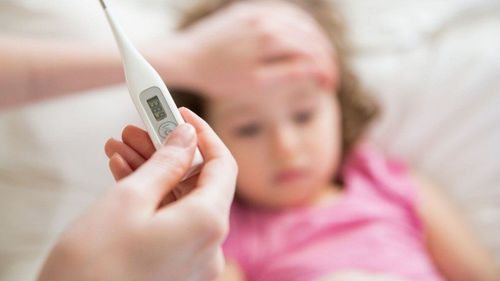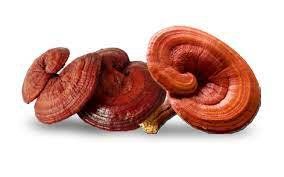This is an automatically translated article.
Young children are very easy to get sick and easy to relapse, often have diseases such as sore throat, bronchitis, flu... The leading cause is due to the child's weak resistance, combined with other factors such as: change in weather or living environment, often in contact with disease sources... So how should children be sick and how to prevent children from getting sick?
1. Why do children often get sick?
The cause of this condition is very complicated, it is a combination of many different factors, but the basic causes can be mentioned as follows:
The child's immune system is not yet complete and weak: In the early stages, babies receive antibodies through breast milk, also called "passive immune system". Then the immune system will develop in proportion to the age of the baby. Due to the weak immune system of young children, they are very sensitive to pathogens. One way to actively strengthen children's resistance is to vaccinate, but vaccines are only effective for certain diseases while common minor illnesses such as flu, upper respiratory infection are caused by many types. caused by viruses; Poor digestive system: Children's ability to digest and absorb food is still poor due to an incomplete intestinal microflora, a lack of digestive enzymes. This situation is especially serious in children with anorexia, inadequate nutrition. In addition, external factors such as the child's diet depends entirely on adults, the habit of forcing children to eat... will have a negative impact on overall health and create conditions for many minor illnesses. happen; The ability to use drugs is still limited: Many drugs to treat minor illnesses are completely contraindicated for young children, leading to many diseases that need to be taken but children cannot use them. The most prominent of which are antibiotics, which can both be harmful because of side effects and cause an imbalance of beneficial bacteria in the gut, making digestion worse. The end result is still health effects and increased risk of minor illnesses; Some children have immunodeficiency: This condition causes the body to limit or not produce an immune response to common pathogens. Therefore, the body is susceptible to severe infections, even leading to death. Causes of immunodeficiency can be congenital (primary immunodeficiency) or acquired (secondary immunodeficiency). Watch now: Zinc needs when children have colds, rashes and need to strengthen immunity

Duy trì thói quen ngủ đủ giấc là cách phòng tránh trẻ hay ốm vặt
2. How to prevent children from getting sick
What to do with sick children is the question of many parents with young children. Health experts suggest some ways to prevent children from getting sick as follows:
Breastfeeding: Breast milk is the most complete source of nutrition and also contains a large amount of antibodies (especially colostrum). necessary for the body to fight pathogens that cause minor illnesses; Building a scientific lifestyle: Maintaining a habit of getting enough sleep, keeping clean are ways to help children limit the attack of disease-causing microorganisms; Creating a habit for children to be active, especially participating in outdoor activities is one of the effective ways to prevent children from getting sick. This habit both helps the child's body stay healthy and enhances the absorption of vitamin D to grow taller: The nutritional regimen needs to be fully supplemented and balanced with nutrients; Vaccination: This is a way to strengthen children's resistance both proactively and safely. Children under 3 years of age should be vaccinated with all vaccines to prevent hepatitis B, tuberculosis, diphtheria, pertussis, tetanus, measles, polio, chickenpox... If it is not treated in time, it can seriously threaten the baby's health or leave complications affecting later.
In order to minimize the unwanted side effects of antibiotics, parents of young children are not allowed to use them on their own, but must go through the examination process, appoint the right dose and enough time by the doctor. This also contributes to limiting the phenomenon of antibiotic resistance, which is increasingly common today.
Watch now: Should you use tonics for children or minor illnesses?

Bổ sung dinh dưỡng đầy đủ là cách phòng tránh trẻ hay ốm vặt
3. Children who are often sick should supplement what?
In addition to the above ways to prevent children from getting sick, another issue that parents need to pay attention to is what to add to children who are often sick:
Children's nutrition is very important, a huge decision to the health of young children. The baby's diet needs to be fully supplemented with nutrients, vitamins and trace elements. However, parents should only feed according to the needs of each child, absolutely do not force them to eat because it can cause vomiting and regurgitation. Vomiting can bring food into the nose, inhaled into the bronchi, causing prolonged inflammation or life-threatening choking.
Besides familiar foods such as meat, fish, eggs... Parents should make a habit of feeding their children a lot of green vegetables and fresh fruits, and at the same time, limit the use of processed foods and drinks containing alcohol. gas, sweets...
To strengthen children's resistance, parents need to combine a regimen of rest, regular and reasonable exercise with a diet full of nutrients such as: protein. supplements from beef, chicken, pork or legumes; fats should prioritize choosing sources of unsaturated fats.
In particular, parents should not ignore the addition of beneficial bacteria (or probiotics) into the daily nutrition of young children. This way to prevent children from getting sick is both simple but highly effective, helping to strengthen children's resistance and thereby prevent pathogens from entering the child's body.
Immune system plays a decisive role in the frequency of children's illnesses, children with weak immune systems are likened to "a weather forecaster" because every time the weather changes, children are easy to get sick.
In fact, the immune system is only healthy when the child's intestinal tract is healthy. children and mothers no longer have to worry too much about children or minor illnesses.A lot of reliable studies around the world have proven that supplementing with beneficial bacteria helps limit the risk of inflammatory diseases and at the same time strengthens the immune system. the ability to absorb and digest nutrients in children under 9 years old.
However, the improvement of symptoms of anorexia can take place in a long time, so parents are advised to be calm and persistent when supplementing. substances for babies, including through eating or drinking or functional foods, especially when using functional foods, they should choose foods of natural origin that are easily absorbed, not o Children use many types of food at the same time or continuously change different types of functional foods.
Parents also need to supplement their children with important vitamins and minerals such as lysine, chromium, B vitamins, etc.
For more nutritional knowledge and child care for each age, parents should regularly visit the website vimec.com and make an appointment with the leading doctors, pediatric and nutrition experts of the National General Hospital. Vinmec when needing advice on children's health.













